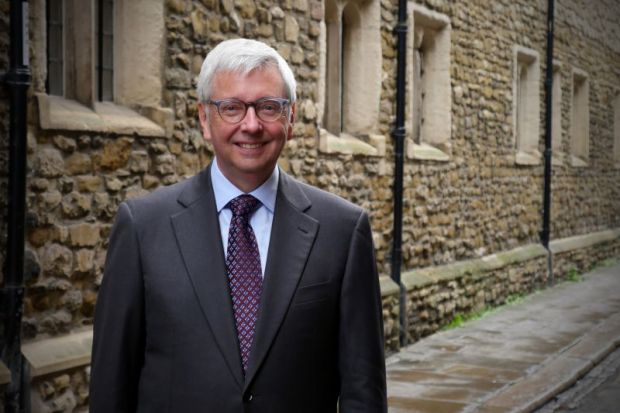The new vice-chancellor of the University of Cambridge has called on the institution to take a “global lead” on research and collaboration, as he acknowledged the “unprecedented complexity” facing the UK’s higher education sector.
Canadian Stephen Toope, previously the director of the University of Toronto’s Munk School of Global Affairs, and vice-chancellor of the University of British Columbia, joins Cambridge at a time when Brexit threatens the UK’s access to European research funding and partnerships, and amid public scepticism about the benefits of globalisation and immigration.
After being installed as vice-chancellor on 2 October, Professor Toope described this time as a “new age of anxiety, marked by a widespread distrust in institutions, in experts, and in business-as-usual politics”. The erosion of ties that once bound people and peoples together [and] the loss of a wider sense of community” meant that societies were becoming “increasingly inward looking”, and “increasingly susceptible to extremism in all its forms”, the expert in international law said.
But, in his inaugural address at Senate House, Professor Toope argued that Cambridge must continue to work across borders.
“Addressing most of the big issues facing humanity requires that we work across the borders of nations and across the boundaries of academic disciplines,” Professor Toope said. “No single country or discipline can have exclusive purchase on how we attack today’s fundamental problems – nor can a single institution, no matter how high in the league tables.
“With its breadth and depth of expertise, with its history of truly disruptive discovery, Cambridge must take a global lead as the place where barriers between areas of knowledge are broken down, the place where global collaborations are seeded and nurtured.”
Speaking after the government unveiled plans to scrap a planned increase in tuition fees, amid growing debate in the UK about the public and private value of higher education, Professor Toope said universities in Britain and around the world were facing “unprecedented complexity”. In the past five years, higher education institutions in the UK “have seen an unparalleled shake-up in the way they are funded, governed and evaluated”, Professor Toope said.
But Professor Toope, who completed his PhD at Trinity College, Cambridge, said he was optimistic about the outlook for the sector.
“Universities, including this great university, are used to being battered by external forces of change,” he said. “Cambridge has survived, and then thrived, through the Reformation, civil war, world wars, depressions and recessions, economic bubbles, and more.
“Our current worries are not unique. I remain resolutely confident in universities’ ability to endure and contribute despite – perhaps even because of – the fast pace of change.”
Register to continue
Why register?
- Registration is free and only takes a moment
- Once registered, you can read 3 articles a month
- Sign up for our newsletter
Subscribe
Or subscribe for unlimited access to:
- Unlimited access to news, views, insights & reviews
- Digital editions
- Digital access to THE’s university and college rankings analysis
Already registered or a current subscriber? Login








